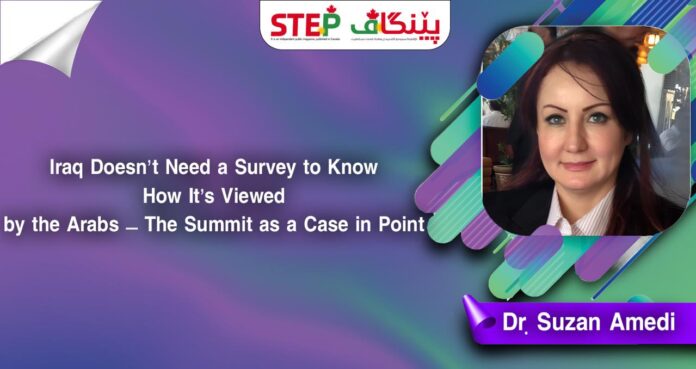Dr. Suzan Amêdî
Despite extensive preparations and the political expectations surrounding the Arab summit held in Iraq, the outcomes were disappointing—not only in terms of attendance and resolutions, but also in the political messages conveyed by notable absences and ambiguous positions. The summit starkly reflected an Arab reality in crisis, where priorities shift with capitals, and Iraq is reduced to a marginal note on larger agendas.
The absence of several influential Arab leaders diminished the summit’s political and media weight, sending a message that Baghdad is not seen as a center for consensus-building. The final statements offered nothing new, merely recycling phrases of solidarity and support without practical steps or firm positions—further widening the gap between rhetoric and reality. Inter-Arab tensions and the ongoing rivalry between regional axes were clearly visible, with Iraq appearing more as a venue for external balancing than a host with real influence.
The summit also failed to meaningfully address the region’s most pressing issues—Palestine, Sudan, Syria, Lebanon, and Yemen—falling short of proposing any realistic vision or initiative. This exposed a collective paralysis that diplomacy alone cannot conceal. More significantly, it underscored Iraq’s continued loss of its unifying Arab identity. Many capitals still view Iraq through a sectarian or alignment-based lens, not as a credible bridge-builder among divided parties.
The summit could have been an opportunity to reintroduce Iraq as a unifying actor rather than a temporary host. Yet this goal is hindered by two key obstacles: the first is the Arab world’s lack of confidence in Iraq’s decision-making independence, due to its entanglement in external—particularly Iranian—influence. The second is Iraq’s weak role in handling major Arab files, which renders its political presence supplementary rather than central. Thus, the summit’s failure was not an isolated diplomatic event, but the result of a long-standing decline in Iraq’s Arab weight, shaped both by internal policies and the attitudes of its neighbors.
The summit failed to live up to its promises, but ironically succeeded in revealing the true nature of Arab-Iraqi relations. Iraq doesn’t need a survey to gauge its standing among Arab states—sometimes, silence and absence speak louder than words.





